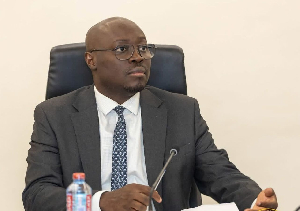Members of the Integrity club in some basic schools have proposed the swearing of Integrity Oaths by public officials to their religious leaders as a means of reducing corruption in Ghana.
They are of the view that the swearing of the Oath would emphasise the link between integrity and one's religious faith in public service.
The suggestion was feedback from pupils, who are members of the Integrity Club established by the Interfaith Shaping Hearts, Attitudes and Mind-set to end Corruption in Ghana (I-SHAME Corruption in Ghana) project.
Briefing the media in Accra, Mr Zan Akologo, the Coordinator of Forum for Actions on Inclusion, Transparency and Harmony (FAITH) in Ghana Alliance, said the pupils were of the firm conviction that when the suggestion was implemented, it would help religious leaders in holding their members accountable to a virtuous and honest life in public service.
Mr Akologo, who is also the Executive Secretary of Caritas Ghana, said when Faith leaders take up the challenge, they would be contributing to building a new cadre of anti-corruption Ambassadors in Ghana's public service.
Mr Muhammed Affum, a Representative of Alhaji Ahmad Anderson, Deputy Ameer of the Ahmadiyya Muslim Mission in Ghana, said there was the need to adopt different ways to tackle the various forms of corruption in the country.
He said it was imperative on the side of the state to reduce corruption by taking interest in how citizens made their wealth, adding that there is currently no institution that assesses how citizens made their fortunes.
Mr Affum said the latest attempt by the faith-based organisations to implement the I-SHAME Corruption in Ghana would yield positive results in reducing corruption, as new young Ambassadors were been trained to promote integrity in all facets of life.
He said there is too much impunity in the country, which has made corruption more lucrative due to the absence of measures to make corruption a high-risk business to deter people from indulging in it.
Rev Emmanuel Barrigah, General Secretary of the Ghana Pentecostal and Charismatic Council, urged Preachers to shift the focus away from prosperity messages to evangelistic messages.
He said corruption was a matter of the heart, adding that if hearts of the many Christians were fully transformed, it would be difficult for corruption to thrive in the country.
General News of Friday, 1 November 2019
Source: ghananewsagency.org












